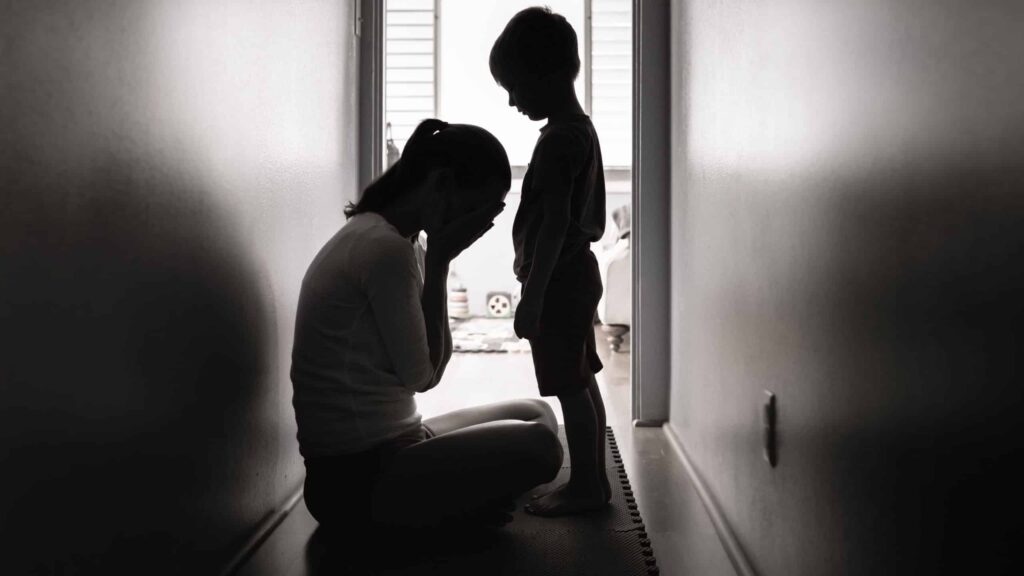
Who gets the money in a wrongful death lawsuit? In general, the proceeds of a successful lawsuit for wrongful death go to the immediate family members who are still alive. This typically includes the victim’s spouse, child, and/or parents. In cases where there are no close relatives, some states may allow the money to be given to distant relatives.
Additionally, certain states permit a survivor action that can be used to obtain compensation for the victim’s estate. This money is then passed on to the victim’s heirs.
BOOK A FREE CONSULTATION!
Who Can File a Claim for Wrongful Death?
State law determines who is eligible to bring a claim for wrongful death. Each state has a wrongful death statute that specifies who is eligible to file a wrongful death claim. If someone meets the qualifications and files a lawsuit, they would then be eligible to receive compensation.
In general, the victims’ family members can bring a claim for wrongful death.
- Spouse,
- Children,
- Grandchildren,
- Parents
- Personal representative or estate executor
The list of states varies significantly, and this includes the rules regarding who can file a wrongful death suit. In Nevada, for example, any descendant of the victim is eligible to file the suit, which expands the group of potential claimants to a much larger extent. This includes the victim’s surviving:
- Spouse,
- Children,
- Grandchildren,
- Parents,
- Siblings,
- Nieces and nephews
- Next of kin
The proceeds of the lawsuit will be distributed to the loved ones in accordance with the victim’s will. In the event that the victim didn’t have a valid will, the state intestacy laws will distribute the money according to the victim’s nearest of kin.
You should consult an experienced wrongful death attorney at a reputable firm in your state if you’re unsure if you qualify to file a claim. If you act quickly, there may still be time to file your wrongful death lawsuit before the Statute of Limitations expires.
What Is Someone’s “Next of Kin”?
The money is paid to the estate in states where the wrongful death lawsuit must be filed by the estate of the deceased. The money is distributed according to the victim’s will. In the absence of a valid will, the money is distributed according to state intestacy laws. Intestacy laws in most states are based on the table for consanguinity or blood relations.
This means that your next of kin are usually the first of the following sequence of relations:
- Spouse,
- Children, whether young or old
- Parents
- Siblings
- Grandchildren,
- Grandparents,
- Great-grandchildren,
- Nieces and nephews
- Aunts and uncles
- First cousins
The beneficiaries of the wrongful death claim would receive money. If there is more than one person in the same relationship they will split the money equally.
For example, John died in a car crash without a valid will. He does not have a spouse but he has 3 children who are still alive. If the wrongful death claim is worth $90,000, each surviving child will receive $30,000.
What Are the Types of Compensation Available?
The amount of money that may be recovered for a successful wrongful death claim also depends on the state. Generally, it includes compensation for:
- Funeral expenses
- The deceased person’s lost income
- Loss of consortium
This is different from regular cases of personal injury. The compensation in cases of personal injury is intended to assist the victim who was directly injured by the accident. On the other hand in wrongful deaths, the compensation is intended to help the loved ones and dependents. This is why, for example, wrongful death damages don’t include compensation for the victim’s medical costs.
The surviving family members of the deceased should seriously consider seeking legal advice from a wrongful death lawyer with offices in the state. It is important to ensure that the insurance provider of the responsible party offers a fair settlement. Maximizing payouts can reduce the impact of the death.
Is a Wrongful Death Settlement Taxable?
Once again, it depends on the state.
The majority of the money would not be taxed if the loved ones of the victim could file a claim. The IRS excludes compensation from taxable income for sickness and personal injury. However, it’s important to note that certain aspects of an award, such as punitive damages, may be subject to taxation as they are not considered compensation.
If the money is placed into the estate of the deceased, it may be subject to inheritance or estate tax.
Who Gets the Money in a Wrongful Death Lawsuit in California?
In California, the victim’s family members can file a lawsuit for wrongful death:
- Surviving spouses
- Children,
- Grandchildren, if the victim’s children are already deceased
- Other minor children, such as stepchildren, who depended at least 50% on the victim’s financial support.
- Domestic partners
- Anyone else entitled to inherit under California’s will laws
You can receive the following compensation if you are one of these potential plaintiffs:
- The financial support the victim would’ve provided during his or her lifetime or yours, whichever comes first.
- The victim has not provided you with the gifts or benefits you expected.
- Funeral and burial costs
- The value of the household services the victim would normally have provided.
- The loss of the victim’s companionship, love, comfort, protection, affection, and society.
Punitive damages are not available for wrongful death cases in California. They can only be sought if the victim is intentionally killed in a felony murder case, and the defendant can be convicted accordingly.
California is one of the few states that recognize a cause of action, which is typically filed along with a claim for wrongful death.
How Is a Survival Action Different From a Wrongful Death Case?
A wrongful death action seeks to compensate the victim’s family for their loss. On the other hand, a survivorship action compensates the victim’s estate for the losses the victim suffered before death. The right to sue the person responsible for the victim’s personal injury continues even after their death. It’s important to note, however, that if the victim died instantly, they would not have had the opportunity to suffer any losses that could be recoverable in a personal injury claim.
In order to bring a survival action, the personal representative of the deceased’s estate must initiate the legal proceedings.
Survival actions can recover compensation for the deceased victim’s:
- Medical bills
- Lost wages
- Property damage
- Pain and suffering
It can be a significant amount if the victim suffered serious injuries in a motorbike accident or medical malpractice but took several weeks or even months to succumb to the injuries.
Conclusion – Who Gets the Money in a Wrongful Death Lawsuit in California
In a wrongful death lawsuit in California, determining who gets the money can be complex. The state has specific laws and regulations that govern the distribution of compensation. Generally, the damages awarded are intended to provide financial support to the surviving family members and compensate for the losses they have suffered due to the wrongful death of their loved one.
However, the specific distribution of funds depends on various factors, including the relationship with the deceased and the extent of their financial dependence.
If you are facing the challenging process of navigating a wrongful death lawsuit in California, it is crucial to have experienced legal guidance by your side. Tenina Law is here to provide expert assistance and ensure that your rights are protected.
Contact us today for a compassionate and knowledgeable approach to your case.






